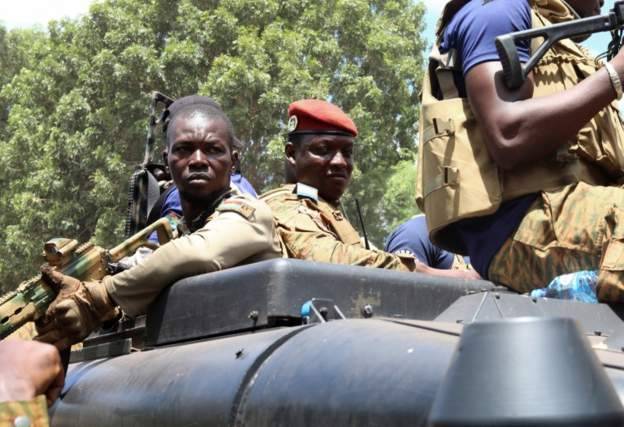Burkina Faso's new junta chief Captain Ibrahim Traoré is, at 34, the region’s youngest leader and a battle-hardened soldier who had become increasingly critical of his predecessor's "unsuccessful strategies" against Islamic State and al-Qaeda militants. Capt Traoré toppled Lt Col Paul-Henri Damiba on 30 September, marking the country's second military coup this year that could slow down an eventual transition to civilian rule. Capt Traoré began his military career in 2009 and has served in various contingents in Burkina Faso's volatile eastern and northern theatres. He was among a group of soldiers who backed Lt Col Damiba's 24 January coup against democratically elected President Marc Roch Kaboré. However, eight months later, divisions emerged in the junta known as the Patriotic Movement for Preservation and Restoration (MPSR).
Various tactics applied by Lt Col Damiba's interim military administration - including reforms to a pro-army self-defence force, the appointment of military governors to violence hotspots and heightened operations in the north and east - have failed to curb deadly militant attacks against civilians and security forces. According to conflict data analysts ACLED Info, Burkina Faso replaced neighboring Mali as the epicentre of militant violence this year, leading to protests demanding Lt Col Damiba's resignation. While the counter-coup was surprising, Burkina Faso's army has long grappled with mistrust and disaffection since the failed coup of 2015 that led to the disbandment of an elite force.
The morale of security forces has been further blighted by persistent insurgent attacks and poor working conditions, particularly in volatile borderlands. In the immediate aftermath of Capt Traoré's power grab, a war of words ensued between his faction and that of Lt Col Damiba, raising fears of a violent power struggle. Lt Col Damiba's resignation on Sunday put Capt Traoré firmly in charge of a fragmented army struggling to face a brutal insurgency that continues to destabilise vast parts of Burkina Faso and the wider Sahel.




